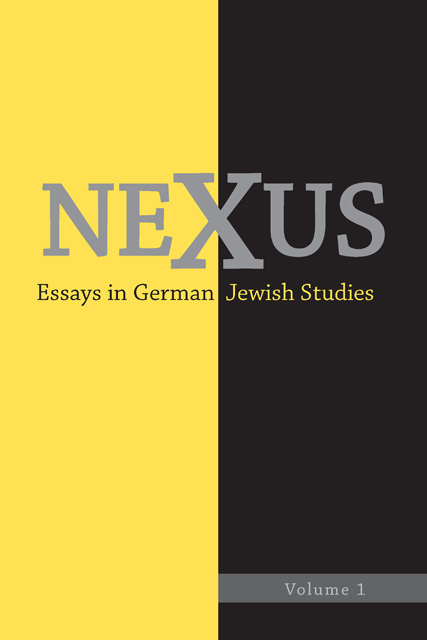The Inability to Love? Jews and Germans in Works by Günter Grass and Martin Walser
Published online by Cambridge University Press: 10 February 2023
Summary
This essay discusses a major work by two prominent and controversial contemporary German writers, Günter Grass and Martin Walser, to show how the absence of an engagement with Jews in recent Germany, and of a German engagement with the Shoah, is discernable in fiction, and still today a determining factor in contemporary discourses on antisemitism. Grass’s novella Im Krebsgang and Walser’s novel Tod eines Kritikers, both published in 2002, each portray the killing of a Jew by a German, non-Jewish male. Both texts represent reductively a German male fantasy of prevailing over the past. My discussion illustrates how such fantasies, resulting from the inability to mourn (the past), may lead to an absence of the capability to love or accept the (Jewish) other, as well as the (German) self in contemporary German settings.
“ THE INABILITY TO LOVE” is an allusion to Alexander and Margarete Mitscherlich’s groundbreaking study of 1967, Die Unfähigkeit zu trauern (English, 1975, The Inability to Mourn). The Mitscherlichs’ innovative psychoanalytical approach to explaining German attitudes and behavior after the Second World War is still significant to understanding how and why transferred trauma affects contemporary Germans despite ongoing public Holocaust memorial culture. According to the Mitscherlichs, the Germans’ over-identification with Adolf Hitler and enthusiastic support of National Socialism resulted, after the fall of the Third Reich, in an intense defense against guilt, shame, and anxiety, which in turn led to the absence of mourning and perpetual melancholia. In accordance with this early attempt to explain the results of transgenerational guilt and shame, Vamik Volkan recently contended that traumatic memories cannot be handed down intergenerationally; what is instead “deposited” to the next generation are “the scarred self-images of the parents who have been unable to mourn the damage done to their individual and group selves.” Consequently, today, we deal with “children’s reactions to parents.” A. Dirk Moses has emphasized that such reactions can be broken down into two separate groups of German identities: the “non-German” Germans who deny their unbearable past, and the “German” Germans who use displacement strategies to make their national past bearable and affirmable.
While historians and sociologists, especially in contemporary antisemitism studies, often regard this nexus of transgenerational guilt among Germans as an “either/or” paradigm, and much of the debate on contemporary antisemitism in Germany seems to follow this dualistic pattern, my literary analysis explores the tensions between these two extremes.
- Type
- Chapter
- Information
- Nexus 1Essays in German Jewish Studies, pp. 171 - 186Publisher: Boydell & BrewerPrint publication year: 2011

